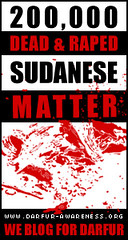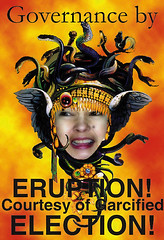Using Smart Power
The approval of the $434 million Millennium Challenge Corporation (MCC) grant for development projects in the Philippines is a clear indication of America’s trust or at least hopefulness in the newly installed Aquino administration. It is also a welcome break for an incipient government that’s severely straitjacketed by a massive budget deficit and national debt obligations that deplete the national coffers even before the government can start to seriously address widespread poverty and the nation’s basic social needs.
Created by the U.S. Congress in 2004, MCC provides grants that can be used to fund development projects in agriculture and irrigation, transportation (roads, bridges, and ports), water supply and sanitation, access to health, finance and enterprise development, anticorruption initiatives, land rights and access, and access to education. As a result of MCC-funded global projects, more than 87,000 farmers have been trained, some $29 million worth of agricultural loans have been disbursed, over 12,000 hectares of land are now productively used, and approximately 3,362 kilometers of road design and construction are underway.
What’s distinctive about MCC grants is that, rather than force the recipient to implement projects MCC thinks are good for the beneficiaries, MCC leaves it to the receiving country to design its own development projects. MCC only requires that the recipient country is committed to good governance, economic freedom, and investments in its citizens.
The Arroyo administration started the quest for an MCC grant, but it reportedly failed the corruption test. MCC strongly encourages transparent, measurable, and sustainable solutions, which may complement other international development programs. It is America’s classic attempt at using “smart power” to promote its global influence, arguably more effective than gunboat diplomacy, which often backfires and creates deep resentment and anti-Americanism around the world.
With the U.S. still in the throes of a deep recession, it is reasonable for the American taxpayer to ask, “What’s in it for me beyond America playing a benevolent role? Why spend billions overseas when poverty is rising within the borders of America?” Well, it’s in fact a win-win economic imperative: by promoting stability and prosperity in the rest of the world, America in turn creates and/or opens markets in countries that would otherwise breed instability and radicalism, and require constant humanitarian interventions. In addition, only a more stable world will allow America to further scale back on its military commitments, thereby potentially reversing the imperial overstretch that has long been blamed for America’s steady decline.
America should address serious external threats, such as terrorists intent on sowing fear and instability, but probably the greater danger to the nation is internal: the mind-set that for the U.S. to protect its way of life it should look inward, to actually believe that by ignoring the world and not “wasting” resources in some godforsaken Third World nation, America will then have the necessary resources to fend for itself. MCC, as it helps poor countries become productive participants in the global market, will help prevent the drift toward such isolationist thinking.
************************************************************************
Created by the U.S. Congress in 2004, MCC provides grants that can be used to fund development projects in agriculture and irrigation, transportation (roads, bridges, and ports), water supply and sanitation, access to health, finance and enterprise development, anticorruption initiatives, land rights and access, and access to education. As a result of MCC-funded global projects, more than 87,000 farmers have been trained, some $29 million worth of agricultural loans have been disbursed, over 12,000 hectares of land are now productively used, and approximately 3,362 kilometers of road design and construction are underway.
What’s distinctive about MCC grants is that, rather than force the recipient to implement projects MCC thinks are good for the beneficiaries, MCC leaves it to the receiving country to design its own development projects. MCC only requires that the recipient country is committed to good governance, economic freedom, and investments in its citizens.
The Arroyo administration started the quest for an MCC grant, but it reportedly failed the corruption test. MCC strongly encourages transparent, measurable, and sustainable solutions, which may complement other international development programs. It is America’s classic attempt at using “smart power” to promote its global influence, arguably more effective than gunboat diplomacy, which often backfires and creates deep resentment and anti-Americanism around the world.
With the U.S. still in the throes of a deep recession, it is reasonable for the American taxpayer to ask, “What’s in it for me beyond America playing a benevolent role? Why spend billions overseas when poverty is rising within the borders of America?” Well, it’s in fact a win-win economic imperative: by promoting stability and prosperity in the rest of the world, America in turn creates and/or opens markets in countries that would otherwise breed instability and radicalism, and require constant humanitarian interventions. In addition, only a more stable world will allow America to further scale back on its military commitments, thereby potentially reversing the imperial overstretch that has long been blamed for America’s steady decline.
America should address serious external threats, such as terrorists intent on sowing fear and instability, but probably the greater danger to the nation is internal: the mind-set that for the U.S. to protect its way of life it should look inward, to actually believe that by ignoring the world and not “wasting” resources in some godforsaken Third World nation, America will then have the necessary resources to fend for itself. MCC, as it helps poor countries become productive participants in the global market, will help prevent the drift toward such isolationist thinking.
************************************************************************
 Marvin Bionat is the creator of PhilippineUpdate.com, a news and views site that has served as a virtual platform that promotes various advocacies, including the political empowerment of overseas Filipinos and accountability in government. He wrote the National Bookstore bestseller How to Win (or Lose) in Philippine Elections (Anvil Publishing, 1998) and is now based in the
Marvin Bionat is the creator of PhilippineUpdate.com, a news and views site that has served as a virtual platform that promotes various advocacies, including the political empowerment of overseas Filipinos and accountability in government. He wrote the National Bookstore bestseller How to Win (or Lose) in Philippine Elections (Anvil Publishing, 1998) and is now based in the Read more articles by Marvin Bionat
************************************************************************


POGB will not sell, exchange, use or allow any 3rd party access to your email for
any other purposes without exception, email exclusively for article updates only.
























0 Speak Out:
Post a Comment